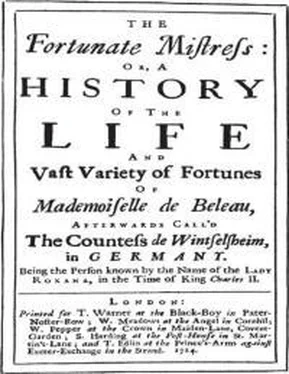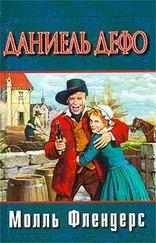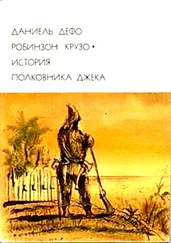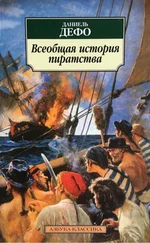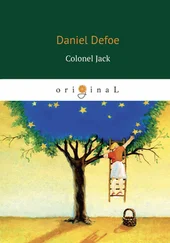Canterbury : Like Spitalfields, Canterbury was a cloth-weaving centre which received a large number of French Protestant refugees, especially around 1685.
merely : entirely.
Conversation : social intercourse.
Livres : The livre (strictly, the livre tournois) was a money of account (i.e., not a coin or bill) in the French monetary system from the thirteenth to the eighteenth century. It declined in value against sterling throughout the seventeenth and eighteenth centuries. In 1700 £1 was equivalent to 15.62 livres.
Portion : dowry, the money and property a woman brings to a marriage.
to Church, or otherways, as my Husband and I cou’d agree about it : One of the major themes of Defoe’s writings on marriage and the family is the necessity for harmony of religious belief and practice between husband and wife. Lack of agreement is seen as a prime cause of marital discord. See Religious Courtship (1727).
ungentile : ungenteel, loutish.
lay : laid.
Never, Ladies, marry a Fool : advice that Defoe frequently gave his female readers. See Good Advice to the Ladies (1702), pp. 7–8; Reformation of Manners (1702), reprinted in A True Collection of the Writings of the True Born English-man , (1703), pp. 103–4 and the Review , IV (4 October 1707), 404.
a wise Fool : one who says little or nothing, after the proverbial expression that fools are wise as long as they are silent.
Tout Opiniatre : utterly fixed in his opinions.
abundance Broke in his Debt : extravagance had resulted in his becoming indebted.
extended for : seized by law to satisfy.
Belch : poor beer (slang).
Words of Course : words to be expected.
Broke : became bankrupt.
Composition : partial payment in settlement of a debt.
Plate : silver coins, utensils, or ornaments.
Dryden’s Countryman : ‘Cymon and Iphigenia, from Boccace’, II.84–5, in Dryden’s Fables Ancient and Modern (1700).
Guineas : The guinea, originally made of gold from Guinea (West Africa), was current in England from 1661 to 1817. It varied in value from twenty shillings to thirty shillings, until fixed at twenty-one shillings in 1717.
in a handsome Furniture : with handsome riding equipment (including an outfit, harness and trappings for the horse, and arms).
Posture : situation, condition.
like Job’s three Comforters : Job 2:11 – 13.
Peir-Glasses : pier-glasses, or large mirrors, so-called because designed to fill the pier, the space between a pair of windows.
the pitiful Women of Jerusalem : Lamentations 2:20. But the allusion may owe something to Josephus’s account of the woman who ate her child during Titus’s seige of Jerusalem. See his History of the Jewish War , Book VI, Chapter 3.
where were these Children born ?: Responsibility for deserted children and the poor, by the Law for the Better Relief of the Poor (1662, also called the Law of Settlement and Removal), lay with the parish in which they had a legal settlement, that is, an established residence (generally, where they were born). Consequently, children and paupers were often sent back to their birthplaces for maintenance. Before 1662 all poor people were entitled to relief wherever they were living. See also note 37.
for want of being taken care of : The care of children by the parish officers was notoriously callous. It is thought that in the seventeenth century less than a quarter of all ‘parish’ children survived, but even this rate of survival was better than the rate of survival of workhouse children in the eighteenth century.
he that gives to the Poor, lends to the Lord : Proverbs 19:17; cf. Matthew 19:21.
Allegories : figurative language (as in the preceding paragraph).
your Bowels of Compassion : 1 John 3:17.
give them no Bread : echoes Lamentations 4:14.
Prethee : prithee, pray.
pretend : intend.
by the Justice’s Warrant : Under the terms of the Law for the Better Relief of the Poor (1662) the Church Wardens and parish Overseers could apply to two local Justices of the Peace for a warrant of removal, by which the children could be returned to the parish from whence they came on the grounds that the legal settlement of the parents had been established there. The dispute in the preceding paragraphs is over the responsibility for poor relief – that is, whether the parish in which the children were born, or the parish in which their father had settled, is responsible. Throughout the hundred and thirty years or so that this law was enforced there was a great deal of inter-parochial litigation over the question of what constituted ‘settlement’.
I : the 1750 edition reads ‘he’.
Poverty is the strongest Incentive : Defoe often expresses this idea in his writings, sometimes proverbially as ‘Give me not Poverty lest I steal’, a paraphrase of Proverbs 30:8–9. See Robinson Crusoe , ed. Angus Ross (Penguin Books, 1965), p. 28; Moll Flanders , ed. Juliet Mitchell (Penguin Books, 1978), p. 188; Colonel Jack , ed. S. H. Monk (Oxford University Press, 1965), p. 165; and The Compleat English Gentleman , ed. Karl D. Bülbring (David Nutt, 1890), pp. 102–3.
of meer Hunger : simply for hunger.
tight : tidy, neat.
a Foreign Bill : the principal means before the invention of the cheque for settling foreign accounts. A bill of exchange is an agreement in writing to pay a certain sum of money on a future date (or on demand, if so agreed). The buyer of the bill pays the drawer of the bill (i.e., the moneylender, who ‘draws’ the bill) a sum of money and obtains the bill of exchange, which he then sends to the person to whom he owes money. That person presents the bill to the drawee (usually a financial correspondent of the drawer), who ‘accepts’ the bill, that is, agrees to pay the stipulated amount. If (as sometimes happens) the drawee refuses to honour the bill, it is said to be ‘protested’, and the unpaid bill, with the formal ‘protest’, is then returned to the original buyer. As protested bills meant a great deal of financial inconvenience and embarrassment, Roxana’s landlord would naturally go to some trouble to avoid a protest. There were also inland bills of exchange, which functioned in much the same way as foreign bills, but were usually for smaller amounts and did not have the same standing in law.
Читать дальше
